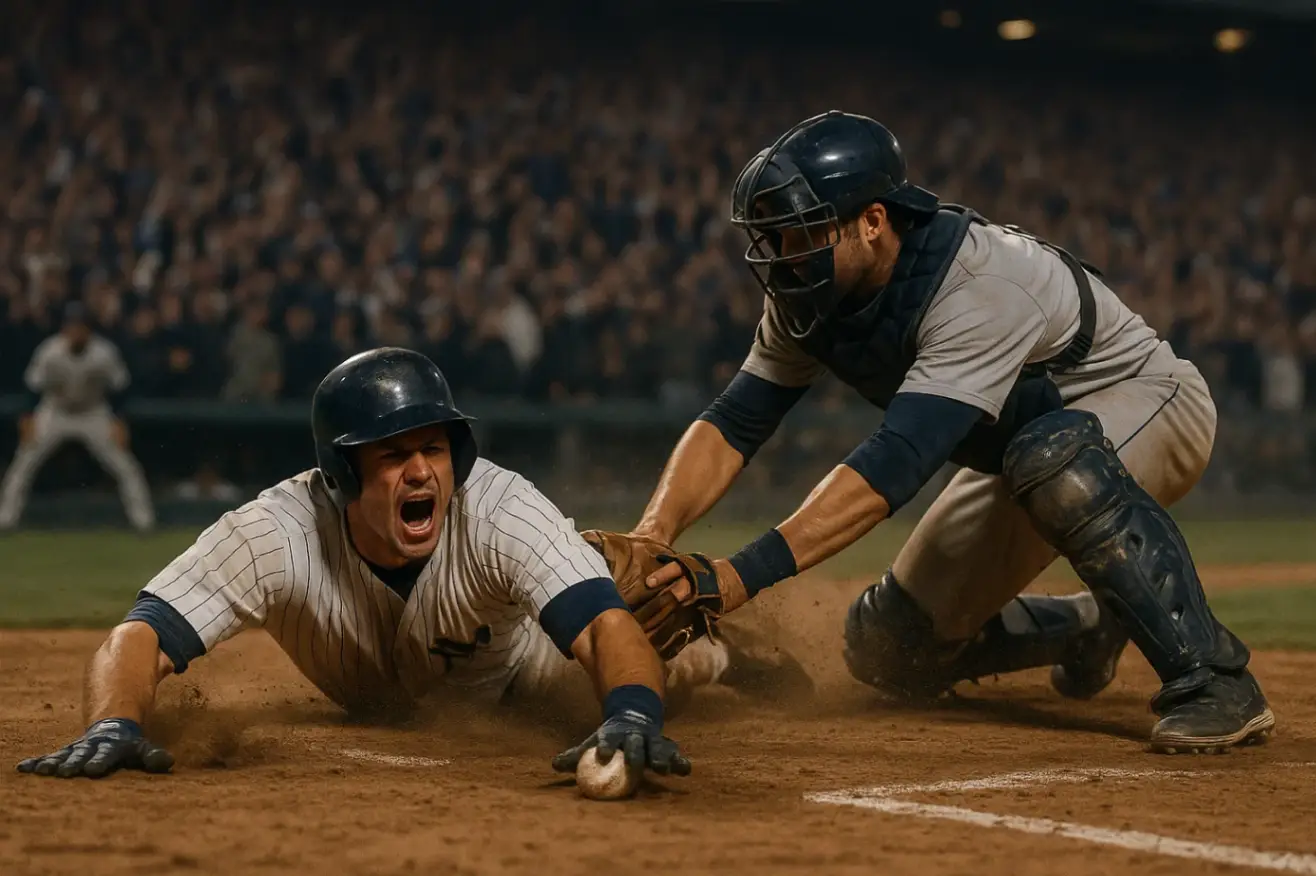Baseball has always thrived on tension, strategy, and moments of brilliance that unfold under immense pressure. From walk-off home runs to pitching duels that last deep into extra innings, the sport has a unique way of transforming seemingly ordinary games into legendary clashes that define entire seasons. Throughout history, certain matches have carried more than just the weight of victory or defeat; they have altered the destiny of franchises, rewritten the legacy of players, and left fans with unforgettable memories. This article explores some of the most dramatic games that determined championships, showcasing how baseball, at its very core, is a sport of resilience, drama, and destiny.
The Nature of Championship Baseball
When the postseason arrives, every pitch, swing, and defensive play carries exponential significance. Unlike the regular season’s rhythm, the playoffs magnify pressure because even the smallest mistake can shift momentum permanently. This heightened environment has produced countless unforgettable showdowns. Championship baseball embodies a mixture of endurance and psychology, as athletes not only face their opponents but also the weight of expectations from teammates, fans, and their own personal histories. It is in this cauldron of pressure that legends are forged, often in the form of last-minute heroics or defensive masterstrokes.
Iconic World Series Moments
The World Series has produced some of the most breathtaking games in sports history. These contests are etched into the minds of fans, not just for their scores but for the stories they tell. Think of Game 7 in 1960, when Bill Mazeroski’s walk-off home run for the Pittsburgh Pirates stunned the New York Yankees, redefining the meaning of clutch performance. Or the unforgettable Game 6 of 1986, when the New York Mets capitalized on a ground ball error to snatch victory from the Boston Red Sox. Such games highlight how unpredictability is embedded in baseball, making every championship a theater of the unexpected. Even in recent years, like the 2016 Chicago Cubs breaking their 108-year drought with a dramatic extra-innings win, the essence of resilience and destiny continues to define championship baseball.
Underdogs and Their Defining Victories

Some of the most captivating championship moments come from underdog stories. Teams that were never expected to compete on the biggest stage often rise to the occasion, fueled by unity and belief. The 2001 Arizona Diamondbacks, facing the mighty New York Yankees just weeks after the September 11 attacks, carved their own place in history with a Game 7 comeback. Luis Gonzalez’s bloop single off Mariano Rivera, one of the greatest closers of all time, epitomized the unpredictability of baseball. Similarly, the Kansas City Royals’ 2015 run showed how small-market teams can use speed, defense, and pitching depth to upset traditional powerhouses. These underdog triumphs remind fans that championships are not solely won by talent on paper but by determination, adaptability, and the ability to seize key moments.
Players Who Changed History
Baseball is a team sport, but certain individuals elevate themselves by delivering performances that alter history. Reggie Jackson earned the nickname “Mr. October” after smashing three home runs in Game 6 of the 1977 World Series, cementing his legacy as one of the greatest clutch performers. Madison Bumgarner’s heroic relief outing in Game 7 of the 2014 World Series showcased the dominance of a single pitcher under impossible pressure. These individual contributions illustrate how one player’s brilliance can tip the balance of an entire championship. Often, these moments also reshape narratives around careers, turning players into icons and giving them a place in the lore of the sport.
Before diving deeper, it’s worth considering some essential qualities shared by championship-defining players. They consistently embody traits such as resilience, mental toughness, and adaptability under pressure. To highlight this, the following list captures what makes certain individuals thrive when the stakes are highest:
- Confidence in crucial moments, regardless of past failures
- Ability to simplify decisions and focus on execution
- Emotional balance under hostile or high-pressure environments
- Tactical awareness and readiness to exploit small opportunities
- Physical endurance to perform in extended games
These qualities, though intangible, are the bedrock of greatness and repeatedly surface in baseball’s most unforgettable matches.
Legendary Series That Redefined the Game
Championships are not only defined by single games but by entire series that sustain drama across multiple contests. The 1975 World Series between the Cincinnati Reds and the Boston Red Sox remains one of the most celebrated, largely thanks to Carlton Fisk’s iconic wave of his Game 6 home run. That series encapsulated both individual brilliance and team resilience. The 1991 World Series between the Minnesota Twins and Atlanta Braves also stands out as perhaps the greatest of all time, featuring multiple extra-inning games and culminating in a 1–0 victory in Game 7 behind Jack Morris’s legendary 10-inning shutout. These series prove that when evenly matched teams clash, every game is a masterpiece in strategy, endurance, and human willpower.
To better illustrate how dramatic finals have unfolded, here is a comparative table of historic championship-deciding games, emphasizing their defining moments:
| Year | Series | Final Game | Defining Moment | Legacy |
|---|---|---|---|---|
| 1960 | Pirates vs. Yankees | Game 7 | Mazeroski’s walk-off HR | First-ever World Series decided by a walk-off homer |
| 1986 | Mets vs. Red Sox | Game 6 | Buckner’s error at first base | Changed Red Sox destiny for decades |
| 1991 | Twins vs. Braves | Game 7 | Morris’s 10-inning shutout | Pitching performance for the ages |
| 2001 | Diamondbacks vs. Yankees | Game 7 | Gonzalez’s bloop single | First Arizona championship, Rivera stunned |
| 2016 | Cubs vs. Indians | Game 7 | Rain delay rally, extra-inning win | Ended Cubs’ 108-year drought |
This table shows not just outcomes but how singular plays and moments can carry legacies that endure for generations.
Modern-Day Classics and Their Impact
Even in the modern era, baseball has not lost its flair for drama. The 2017 World Series between the Houston Astros and Los Angeles Dodgers was a rollercoaster of offense, featuring high-scoring extra-inning battles that kept fans on edge. While controversies later emerged around the Astros’ sign-stealing scandal, the series itself was a display of offensive fireworks and resilience. In 2019, the Washington Nationals became the first team to win every road game of a World Series, toppling the Houston Astros in a historic seven-game battle. These contemporary classics prove that while strategies evolve, the essence of dramatic, championship-defining baseball remains the same.
Another fascinating aspect of modern championship drama is how analytics and advanced scouting have influenced outcomes. Managers today face the constant challenge of balancing traditional instincts with data-driven decisions. Some of the most dramatic modern games have included debates over pitching changes, defensive shifts, and bullpen strategies. These decisions, when successful, highlight the evolution of baseball tactics; when they fail, they become moments of controversy etched into baseball history.
As baseball continues into a new era, fans can expect future championships to deliver more unforgettable clashes. The mixture of tradition, modern tactics, and the timeless human element ensures that the sport will always generate games that hold fans captive, both in the stadium and in memory.
Conclusion
Baseball’s most dramatic games are more than just sporting events; they are moments of theater, suspense, and triumph that capture the very essence of competition. From Mazeroski’s legendary swing in 1960 to the Cubs’ cathartic triumph in 2016, these contests remind us that championships are decided not only by skill but also by resilience, courage, and destiny. Every pitch carries the possibility of rewriting history, and every swing can define a lifetime of memories. As fans, we are drawn to these games not just for the outcome but for the drama, the unpredictability, and the human stories that emerge when baseball is truly on the brink.
